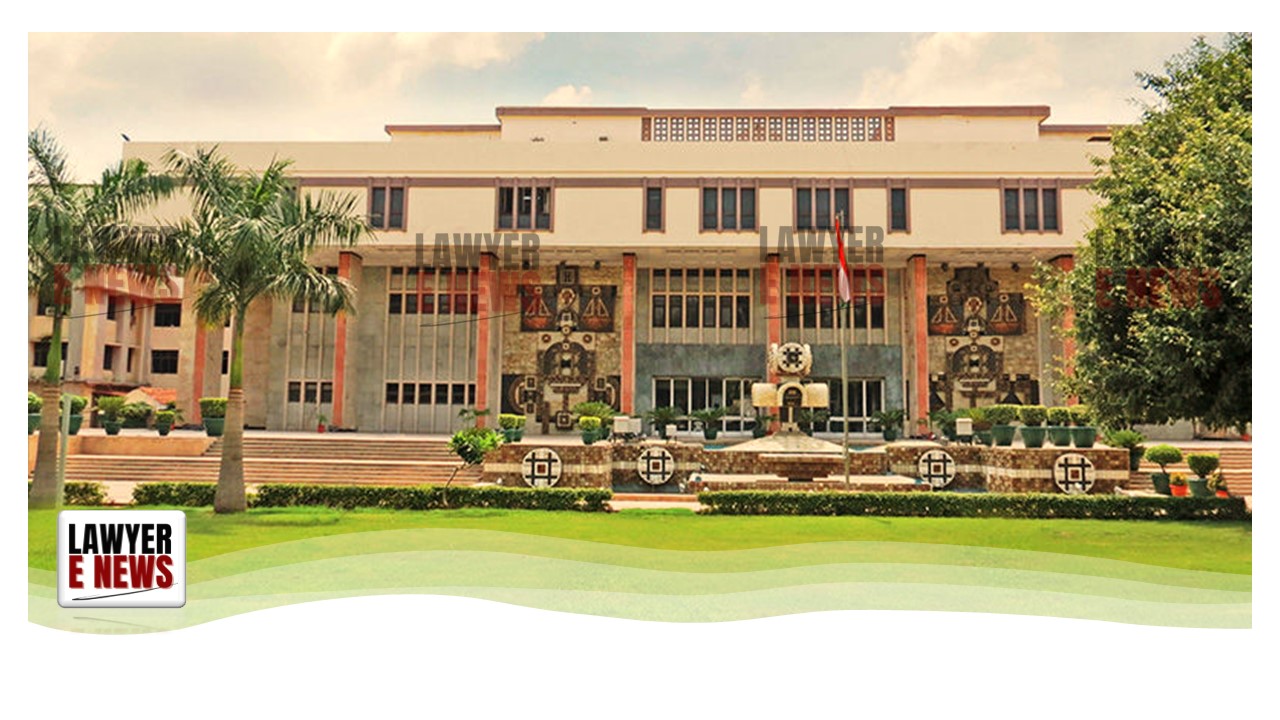-
by Admin
15 February 2026 5:35 AM



Delhi High Court upheld the dismissal of an application for leave to defend under Order XXXVII of the Code of Civil Procedure, 1908, in a recovery suit based on a dishonored cheque of ₹6,50,000. Justice Girish Kathpalia rejected the appeal, finding the appellant’s defense implausible and devoid of any substantial or triable issues. The court reaffirmed the principle that frivolous or vexatious defenses are insufficient to grant leave to defend.
"Concurrent Pursuit of Civil and Criminal Remedies Is Legally Permissible" – High Court Clarifies
The appellant's contention that the respondent could not simultaneously pursue a recovery suit under Order XXXVII CPC and initiate proceedings under Section 138 of the Negotiable Instruments Act, 1881, was dismissed. Justice Kathpalia emphasized the settled legal principle that remedies under civil and criminal law are distinct and may be pursued concurrently.
The dispute arose from a financial transaction linked to the sale of immovable property. The respondent filed a recovery suit under Order XXXVII CPC, alleging that the appellant had borrowed ₹6,50,000 in cash as a friendly loan during the sale transaction of a property worth ₹18,40,000. To secure repayment, the appellant issued a post-dated cheque dated 27.12.2021, which was dishonored due to insufficient funds when presented.
The appellant, however, claimed that the cheque was issued as security for refunding an advance payment of ₹6,50,000 after the respondent initially decided to cancel the transaction. Subsequently, the sale deed was executed on 06.12.2018, and the respondent retained the cheque. Despite the appellant’s alleged efforts, no formal written demand for the return of the cheque was made over the subsequent three years.
The Trial Court dismissed the appellant’s application for leave to defend, holding that his defense lacked substance and was frivolous.
Justice Kathpalia cited the Supreme Court’s ruling in IDBI Trusteeship Services Ltd. v. Hubtown Ltd., (2017) 1 SCC 568, which laid down clear principles for granting or denying leave to defend:
Defenses must be substantial and likely to succeed to justify unconditional leave.
Frivolous or vexatious defenses warrant outright refusal of leave.
Doubtful defenses may result in conditional leave.
The High Court held that the appellant’s defense was neither plausible nor raised any triable issue. The unexplained delay of three years in reclaiming the cheque and the lack of any written communication undermined the appellant’s claim that the cheque was issued merely as a security.
“It remains unexplained as to why the appellant remained silent across the said period of more than three years and did not demand back the subject cheque by way of any written communication,” the Court observed.
The appellant argued that the respondent could not pursue both the recovery suit under Order XXXVII CPC and criminal proceedings under Section 138 of the Negotiable Instruments Act, 1881. The High Court rejected this contention, reiterating that the two remedies are distinct and can be pursued simultaneously.
The Court referenced the settled legal position that civil proceedings for recovery of debt and criminal prosecution for dishonor of a cheque are independent and serve different purposes.
The High Court observed that the appellant’s explanation for not reclaiming the cheque after the execution of the sale deed was implausible. The Court noted that the transaction involved ₹27,40,000, and it was unreasonable for the appellant to issue a security cheque for a significantly smaller amount (₹6,50,000) without reclaiming it post-sale.
The Court emphasized that judicial discretion under Order XXXVII CPC must be exercised to prevent abuse of process. Frivolous defenses, like the one raised by the appellant, do not warrant leave to defend.
The Delhi High Court dismissed the appeal, affirming the Trial Court’s judgment. The appellant’s plea was found to be frivolous, and the suit for recovery filed by the respondent was upheld.
“I find no infirmity in the impugned judgment and decree, so the same are upheld, and the appeal as well as the accompanying applications are dismissed,” Justice Kathpalia concluded.
This judgment reinforces the principle that leave to defend under Order XXXVII CPC is a privilege, not a right, and can only be granted if a substantial and genuine defense is raised. The concurrent pursuit of remedies under civil and criminal law was also clarified, ensuring that litigants can effectively exercise their legal rights.
Date of Decision: January 20, 2025
